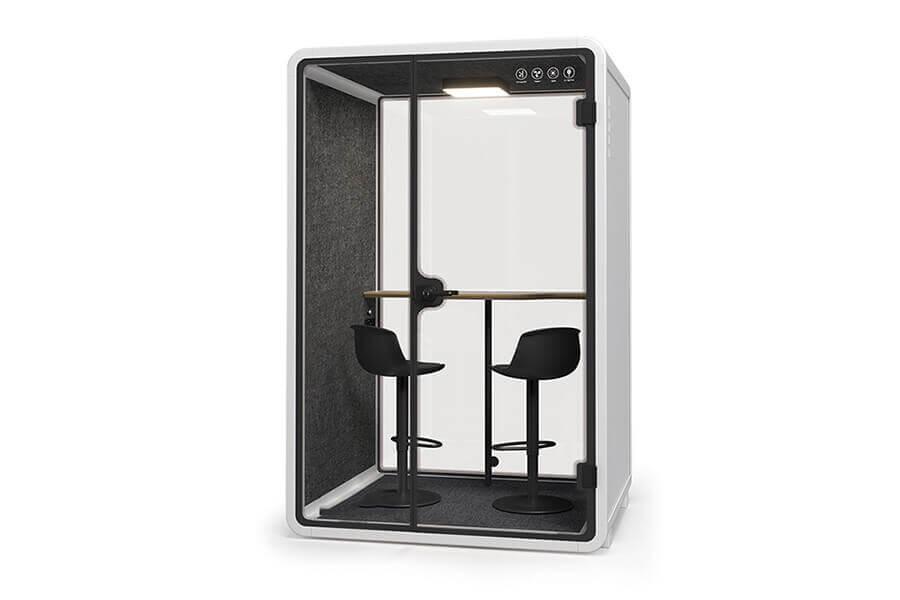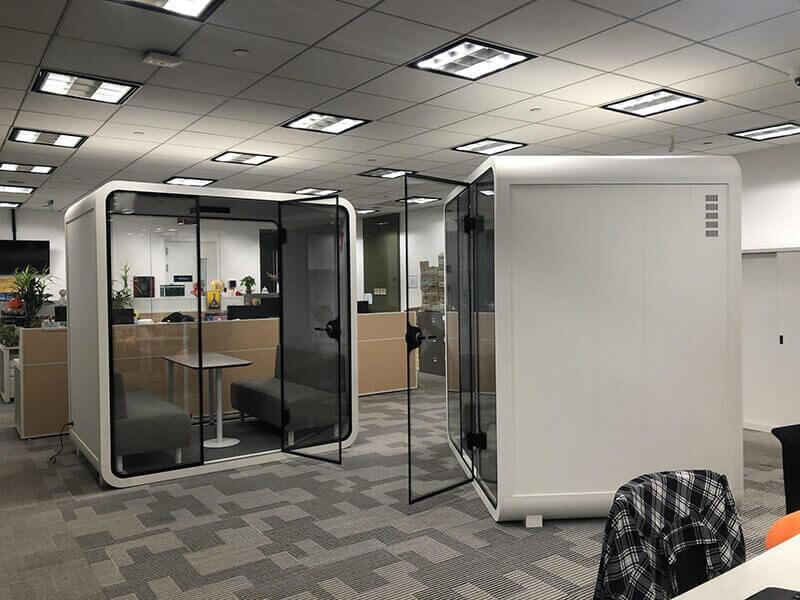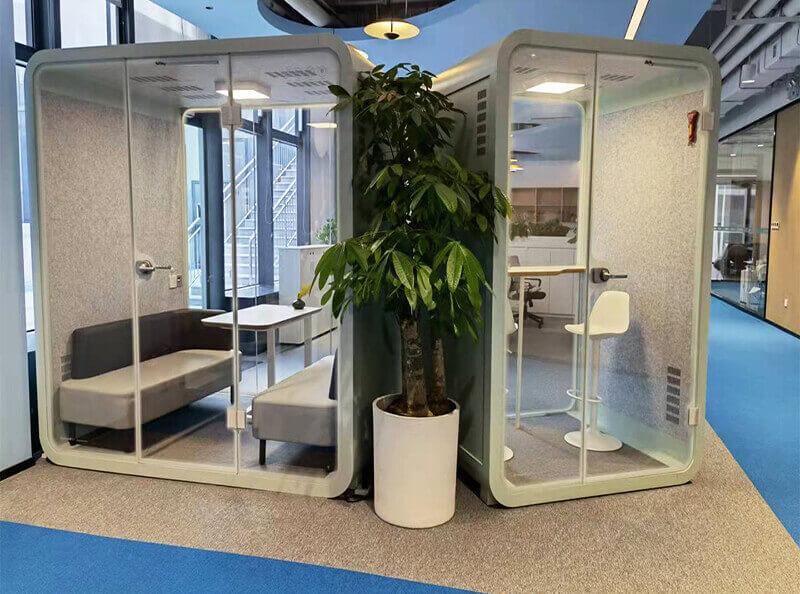Author:SOP Work Pods Manufacturer TIME:2025-04-21
Creating a workplace that supports neurodiversity isn’t just about accessibility—it’s about cultivating choice, control, and comfort. For neurodivergent employees, the work environment can dramatically impact focus, productivity, and well-being. By improving seven foundational aspects—zoning, wayfinding, movement, acoustics, lighting, air quality, and visual privacy—you can create a truly inclusive, empowering office. Here’s how room office pods and thoughtful design can lead the way.
Neurodivergent employees often thrive in environments that allow for sensory regulation. Using room office pods, acoustic panels, and dividers, create clearly defined zones that offer a variety of sensory experiences.
Quiet Zones: Low-light, acoustically dampened spaces with minimal visual clutter. Room office pods offer a secluded retreat for recharging or focused work.
Active Zones: Energizing spaces with vibrant colors, tactile surfaces, and space to collaborate or move freely.
Social vs. Solitary: Open lounges for spontaneous connection, alongside private areas that support solitude.
Why it matters: Giving employees the freedom to choose their sensory environment reduces overwhelm and boosts engagement.

A sense of control starts with orientation. Many neurodivergent individuals feel more comfortable in environments that are intuitive and predictable. Help them navigate with confidence.
Use color-coded signage, focal artwork, and floor zoning to clearly indicate function.
Avoid visually overwhelming elements like busy patterns or abrupt flooring changes.
Place room office pods in locations that are easy to find but offer seclusion from high-traffic zones.
Pro tip: Repeated design features reinforce a sense of order—comfort through consistency.
Movement supports attention, reduces anxiety, and contributes to physical wellness. Design the office to encourage natural motion.
Install sit-stand desks and ergonomic furniture.
Offer mobile tools like fidget toys, footrests, and balance chairs.
Use room office pods not only for quiet but also as spaces for stretching, micro-breaks, or even light physical activity.
Why it works: Movement-based design helps neurodivergent employees regulate energy while benefiting all employees holistically.
Acoustics can make or break focus. Neurodivergent individuals are often more sensitive to noise—whether it’s disruptive or eerily quiet.
Use soundproof room office pods for deep focus or private calls.
Incorporate white noise machines in open-plan zones.
Install acoustic panels, baffles, and dividers to absorb excess noise.
Optimal soundscapes:
40 dB for focused tasks
70 dB for creative collaboration
Flexible sound environments = higher performance.
Lighting deeply influences emotions, concentration, and comfort. What works for one may be overstimulating for another.
Integrate dimmable task lighting in room office pods.
Use natural light strategically—ensure pods have shaded or ambient options.
Eliminate flickering fluorescent lights and glare with matte finishes or window films.
Tip: Survey employees to understand their light preferences and adapt zones accordingly.
Comfort isn't just visual or auditory—air quality and temperature are equally crucial.
Add desktop purifiers, fans, and individual climate tools in and near room office pods.
Maintain HVAC systems and monitor humidity.
Integrate plants to clean air, regulate moisture, and create biophilic comfort.
Green design = clearer thinking + better health.

Visual noise can be just as disruptive as sound. Design for clarity and calm by reducing unnecessary visual input.
Use room office pods with solid or frosted walls for privacy and shielding from distraction.
Encourage a clean desk policy and provide ample storage to minimize clutter.
Avoid flashy screens, flickering devices, and chaotic visual stimuli near workstations.
Enhance focus by layering soothing design with subtle privacy tools—like desktop screens, natural textures, and non-reflective surfaces.

By intentionally designing around sensory needs, movement, and focus, you help every employee—neurodivergent or not—do their best work. Room office pods are not just furniture; they’re inclusive tools that empower individuals to manage their environment and thrive.
Want to create a more inclusive, productive office? Start by integrating room office pods with the seven foundations above—because when every brain gets what it needs, every team gets stronger.